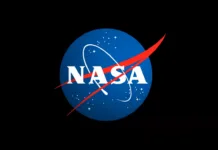France’s Aversion to Coalitions Means Any New Government Risks Early Collapse
In a significant development in French politics, the latest snap elections have resulted in three roughly equal political blocs, bringing the country’s governance to a precarious standstill. This news has been trending on Google Search today, reflecting widespread public interest and concern. For more details, you can refer to this article.
Political Landscape Post-Election
The recent elections in France have been marked by an unprecedented division, with the electorate splitting their votes almost evenly among three primary political groups. The result is a fragmented National Assembly where no single party holds a clear majority. This division raises the specter of political instability, as France’s historical aversion to forming coalition governments means that reaching a consensus on governance will be exceedingly difficult.
Traditionally, French politics have been dominated by major parties, either from the left or the right, with the winner typically forming a majority government. However, the rise of centrist movements and the fragmentation of traditional party loyalties have complicated this dynamic. The refusal of party leaders to engage in coalition talks suggests that any new government formed will be inherently unstable and prone to early collapse.
The No-Confidence Motion Threat
In France, the process of forming a government involves the appointment of a Prime Minister who must then gain the confidence of the National Assembly. Without a clear majority, the appointed Prime Minister faces the imminent threat of a no-confidence motion, which could lead to the government’s quick dissolution. This scenario is becoming increasingly likely as the major political factions have categorically ruled out forming what they term ‘unnatural alliances.’
A no-confidence motion, if passed, would necessitate yet another election, further deepening the political crisis. This cyclical instability poses a significant risk to France’s domestic and international standing, potentially hindering its ability to implement crucial policies and reforms.
Historical Context and Modern Implications
France’s reluctance to form coalition governments is deeply rooted in its political history. The Fifth Republic, established in 1958 under Charles de Gaulle, was designed to promote political stability by encouraging strong, single-party governments. Coalitions were seen as a source of weakness and indecision, contrary to de Gaulle’s vision of a powerful, decisive executive branch.
However, in today’s multipolar political environment, this aversion to coalitions may be counterproductive. Modern democracies worldwide, including Germany and Italy, often rely on coalition governments to ensure a broad representation of political views and to foster compromise and collaboration. France’s steadfast refusal to adapt to this model could leave it increasingly isolated and ineffective.
Public Reaction and Expert Opinions
The public reaction to the election results and the subsequent political gridlock has been one of frustration and concern. Many French citizens are worried about the potential for prolonged instability and its impact on the economy, public services, and France’s role on the global stage.
Political analysts have weighed in on the situation, offering a range of perspectives. Some argue that the current impasse could be a catalyst for much-needed political reforms, including changes to the electoral system that would encourage coalition-building. Others, however, warn that the entrenched positions of the major parties make such reforms unlikely in the near term.
International Perspective
The international community is closely watching the developments in France, given its pivotal role in the European Union and global geopolitics. Stability in France is crucial for the EU, particularly in the context of ongoing challenges such as economic recovery post-COVID-19, climate change, and security issues.
European leaders have expressed their hope that French politicians will find a way to work together for the sake of national and regional stability. The potential for France to become a less reliable partner in EU affairs is a significant concern, particularly as the bloc navigates complex negotiations on various fronts, including trade, defense, and environmental policy.
Economic Implications
The economic implications of political instability in France are profound. Uncertainty in governance can lead to a lack of investor confidence, potentially slowing economic growth and affecting the job market. Key economic reforms, such as those targeting pensions, labor laws, and taxation, may be delayed or derailed entirely.
Business leaders are urging the political factions to find common ground and form a stable government to ensure that economic policies can be effectively implemented. The business community fears that prolonged political turmoil could harm France’s competitive edge and its attractiveness as a destination for investment.
Looking Ahead
As France navigates this challenging political landscape, the coming weeks will be crucial. The process of appointing a Prime Minister and forming a government will be closely watched, both domestically and internationally. The major parties’ ability—or inability—to negotiate and compromise will determine the extent of stability in the near term.
If France is to avoid repeated cycles of elections and no-confidence motions, its political leaders may need to reconsider their stance on coalitions. Embracing coalition government could provide a pathway to more inclusive and representative governance, aligning France with other modern democracies that have successfully adopted this model.
For more information on this topic, you can refer to this article.
This unfolding situation remains highly fluid, and updates are expected as political negotiations continue. Stay tuned to reliable news sources for the latest developments in this critical story.

































